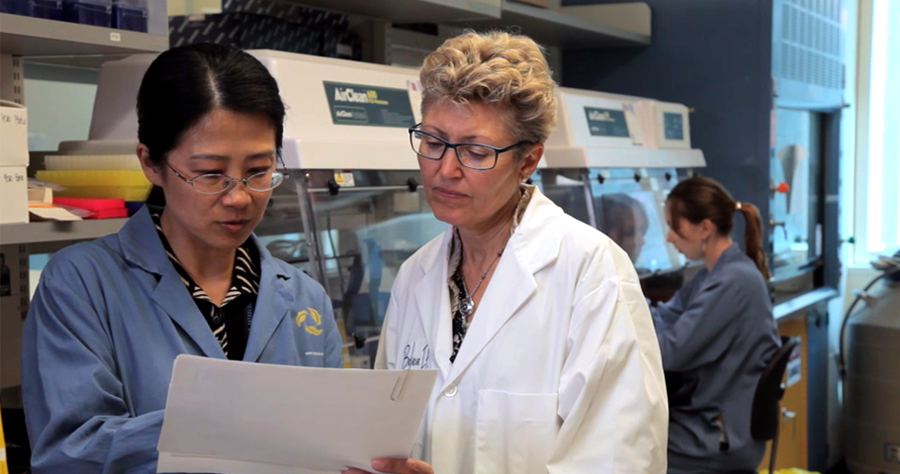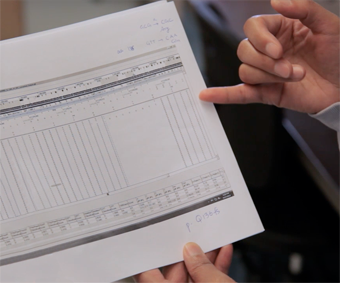Advanced Molecular Diagnostics Laboratory (AMDL)

AMD Lab Director Dr. Suzanne Kamel-Reid at work
The Advanced Molecular Diagnostics Laboratory (AMDL) at the Princess Margaret Cancer Centre, under the direction of Dr. Suzanne Kamel-Reid, is a CAP/CLIA-certified clinical laboratory that develops, evaluates and implements innovative high complexity molecular diagnostic clinical tests for Princess Margaret Cancer Centre clinical programs. The AMDL collaborates with the Cancer Genomics Program to develop new clinical genomic tests and perform molecular profiling of tumor specimens for patients at the Princess Margaret Cancer Centre.
Advanced Molecular Diagnostic Laboratory’s Mission
The AMDL’s mission is to bring new genomic diagnostic platforms and tests using advanced molecular technologies into the clinical setting at the Princess Margaret Cancer Centre and within the UHN hospital community. Through the design, development, validation and implementation of these new tests, including those based on next-generation sequencing (NGS) approaches, we aim to positively impact the care of cancer patients at UHN. The AMDL staff work closely with physicians at the Princess Margaret to determine the genomic test needs of their patients and the best genetic test approaches to answer clinical questions. The AMDL also participates in numerous quality assurance activities to ensure rapid and high quality clinical genetic test results for patients.

Next Generation Sequencing-based Molecular Profiling
The AMDL performs molecular profiling of fresh and archived tumor samples for patients on the Princess Margaret IMPACT/COMPACT trials, as well as germline testing of blood samples, and participates in many educational activities of the CGP, including the Genomics Tumor Board. AMDL and CGP staff collaborate to determine new clinical genomic tests needed for CGP programs; to develop and investigate these tests for clinical use; and in standard-setting activities such as definition of reporting standards for molecular profiling.
Patient samples are routinely profiled on genome sequencers using test panels of cancer-associated genes. Samples are quality-checked prior to testing, and pass through a standard testing workflow (library preparation; sequencing; data analysis; and, clinical interpretation of results), before formal reports are sent to the patient’s physician. The AMDL employs data-driven, evidence-based, methods to ensure that a high efficiency and standard of testing are maintained for all samples, and to develop and implement workflow and process improvements.
New Diagnostic Platforms and Tests
In the AMDL, we continually seek ways of improving the information benefit derived from molecular profiling, as well as ways to apply new genomic testing methodologies in the diagnostic setting. New molecular profiling tests are designed, optimized, validated and developed for clinical implementation according to a rigorous set of community-standard and internal guidelines. To enable the development of new tests, the AMDL also trials new technologies, instrumentation and platforms. Tests currently in development include a 555-gene next-generation sequencing panel for comprehensive tumor molecular profiling, digital PCR for detection of low level variants, methylation analysis for epigenetic changes and copy number and translocation detection using next-generation sequencing platforms.
For more information about the AMDL’s work, please visit us at our website.

